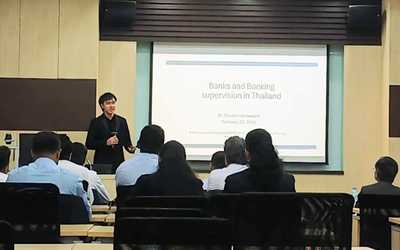Evaluating Thailand's Free Basic Electricity Program
Abstract
This study evaluates the performance of Thailand's Free Basic Electricity (FBE) program along three dimensions: targeting effectiveness, benefit adequacy, and subsidy burden distribution. While the FBE benefits reaches the targeted population (low-income families) quite well, the benefit leakage to the non-targeted population could result in a significant increase in the overall subsidy cost. Furthermore, the current 50-unit free quota given by the FBE program is insufficient for the basic need of many low-income families. Lastly, the FBE subsidy burden falls exclusively on the industrial/commercial customers, but the cost increase has been rather small. Therefore, Thailand's FBE program can be markedly improved by introducing a more effective targeting approach to reduce leakage, which will allow the government to raise the free electricity quota while maintaining the same overall subsidy cost.










